#caliph
Note
You said you read a lot about Arabia and Islam and I have a random question that you might be able to help with. I know that for centuries there was a caliph who was like the leader of muslims and I always wondered why if the king of saudi arabia is in charge of the holy sites why isn't he considered the caliph or declared himself as the caliph?
It's a good question and there are a number of complex reasons why that didn't/doesn't happen which require a much deeper dive, but I'll try to give a simplified answer. First of all, the caliph was the spiritual leader of the entire Muslim world and while the caliphs also had a political role as successors to Muhammad, that role changed dramatically through the centuries as the Muslim world grew, Islamic empires rose and fell, and Islam itself branched into different sects. The last widely-recognized caliphs were the Sultans of the Ottoman Empire, but even in the last decades of the Ottoman Empire, there were disagreements throughout the Muslim world about the legitimacy of anyone's claim on the caliphate. The two main branches of Islam -- Sunni and Shia -- have entirely different ideas on how a caliph should be chosen and who the caliph is chosen by.
When the Ottoman Empire collapsed after the end of World War I, the Sharif of Mecca -- Hussein, a direct descendant of Muhammad as the leader of Hashemite dynasty (and great-great grandfather of the current Jordanian King Abdullah II) -- attempted to declare himself the new caliph, but was not accepted. In many ways, it was like a modern European monarch suddenly declaring himself the Pope; that's just not how most Muslims believed the spiritual leader of the Islamic faith should be determined. Plus, Hussein only had a tenuous hold on Islam's holiest sites (Mecca, Medina, and, at the time, Jerusalem) following World War I, and Abdul Aziz Ibn Saud was in the process of taking control of what is now Saudi Arabia. Once Ibn Saud became King of Saudi Arabia, he took over as "Custodian of the Two Holy Mosques" (Mecca and Medina), but the idea of declaring himself caliph was out of the question. Ibn Saud and the vast majority of his supporters were members of the deeply conservative, puritanical Wahhabi sect of Sunni Islam and they believed that the caliph was chosen by all Muslims, not declared by one person. As the guardian of Islam's two holiest sites, the King of Saudi Arabia is responsible for ensuring that all Muslims capable of making the Hajj pilgrimage to Mecca (and the lesser pilgrimage to Medina) can do so. Unilaterally declaring himself the caliph would undoubtedly have alienated many Muslims, particularly those from countries outside of Saudi Arabia and especially Shiites. In other words, it's not within the power of the King of Saudi Arabia to give himself (or any other individual) the title of caliph, and he'd probably get just as much resistance from his fellow Saudis if he tried to do so. There's no way that the Ikhwan -- the ascetic tribes and Bedouins who largely acted as Ibn Saud's military forces as he conquered most of the Arabian Peninsula in the first half of the 20th Century -- would have remained loyal to the first Saudi King if he had unilaterally proclaimed himself the caliph.
The Muslim people around the world -- the ummah -- haven't been united since the death of Muhammad, which is when the divide between Shia and Sunnis began over the true successor of the Prophet, so any caliph is going to be seen as illegitimate by a significant percentage of the population. And in the modern world, any political aspects of a potential caliph are going to be superseded by the temporal responsibilities of the heads of state or heads of government in every country, no matter how large or devout their Islamic population might be. So, a modern caliph would really have to be a spiritual leader, not a political one -- very similar to the Pope. But the Pope also has the unique position of being the head of state (and, really, an absolute monarch) of a sovereign nation. The Islamic world is too fragmented and divided by opposing theologies to allow a modern-day caliph to govern, command military forces, and provide religious guidance in the same manner as Muhammad's immediate successors or even during the 600+ years of Ottoman Sultans. A caliph would effectively have the same standing today as a modern-day Doge of Venice or Japanese Shogun; it's an anachronistic position of leadership and somewhat outdated concept in the world we currently live in -- you know, like the Iowa Caucus or Electoral College.
#History#Politics#Political Leaders#Caliph#Caliphate#Islam#Muslims#Islamic world#Ummah#Saudi Arabia#Muhammad#Sunni-Shia Split#Shiites#Sunnis#Ottoman Empire#Ottoman Sultans#King of Saudi Arabia#Custodian of the Two Holy Mosques
9 notes
·
View notes
Video
Iznogoud
Creators: René Goscinny & Jean Tabary
Studio: Saban | USA/France, 1995
#Iznogoud#René Goscinny#Jean Tabary#Grand Vizier#Bande dessinée#Franco-Belgian Comic#Animation#Saban#Shuki Levy#Caliph
22 notes
·
View notes
Photo

Caliph Stork (Pastel) 2019
#caliph stork#stork#caliph#oriental#marysmirages#painting#drawing#wilhelm hauf#fairy tale art#fairytale aesthetic#illustration#art
156 notes
·
View notes
Text
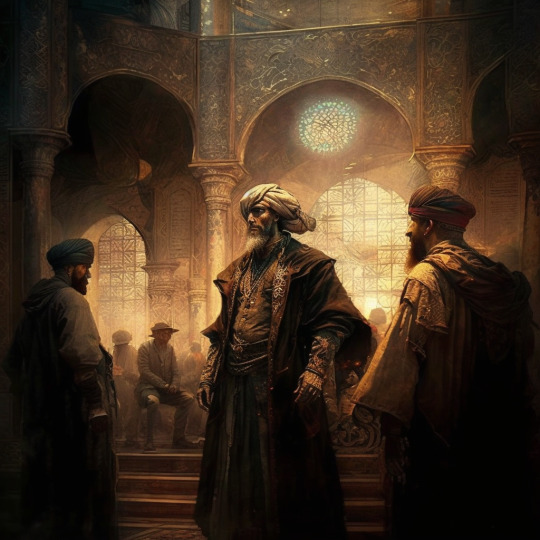
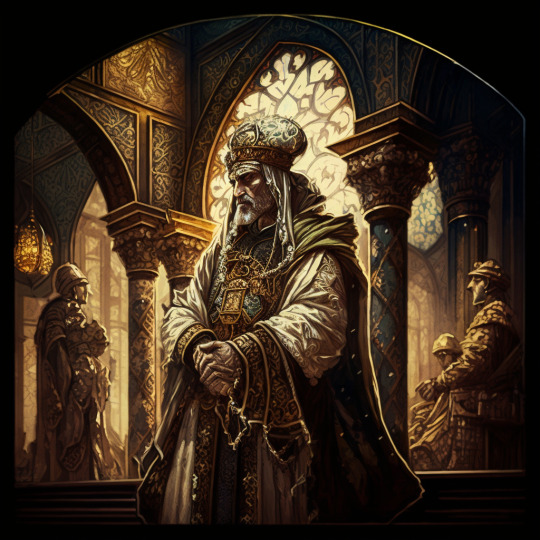
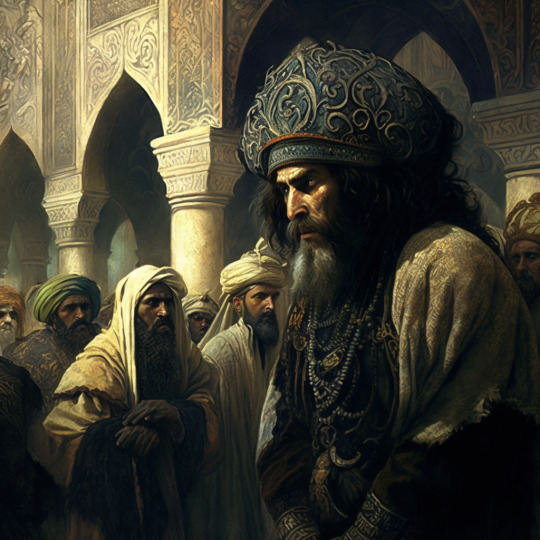
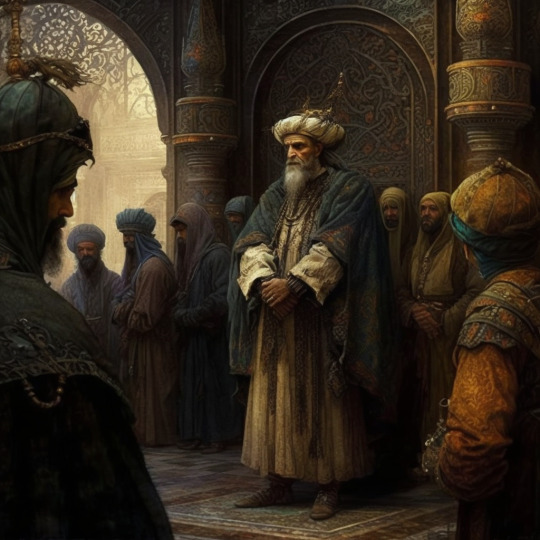
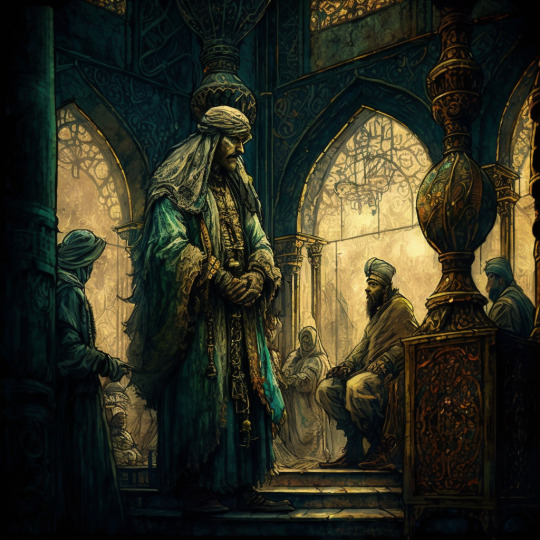
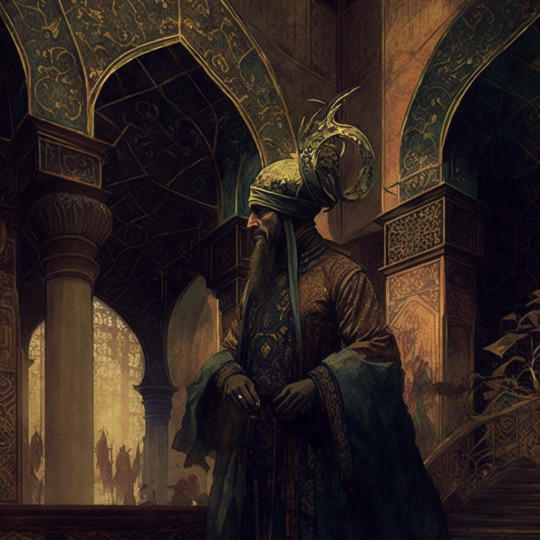
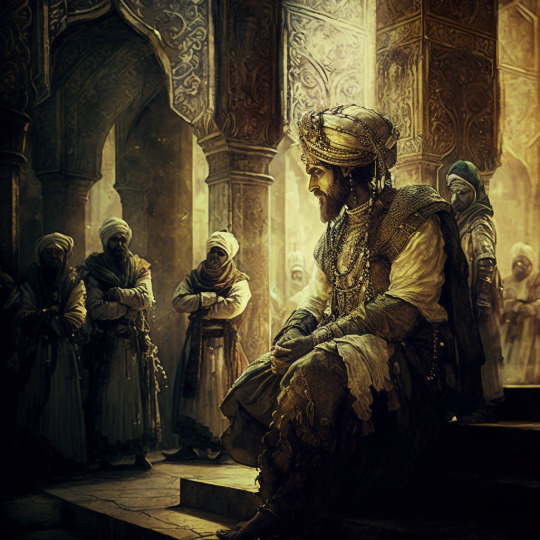
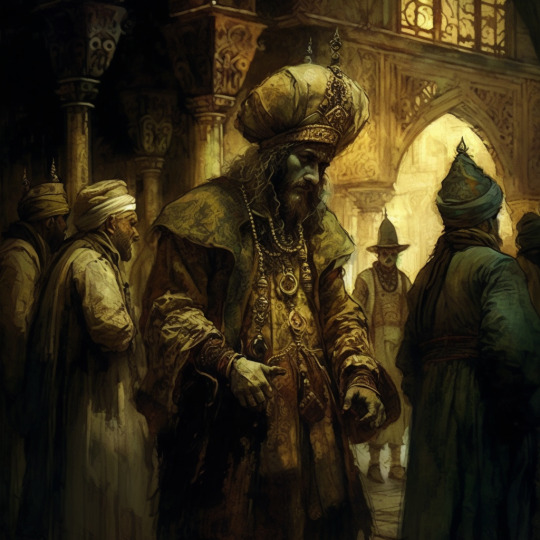
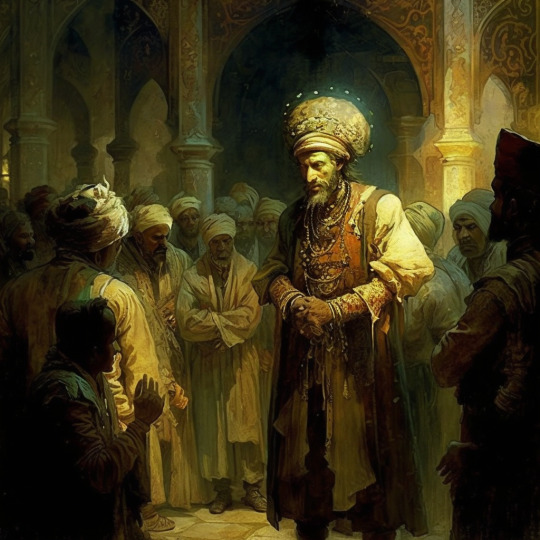
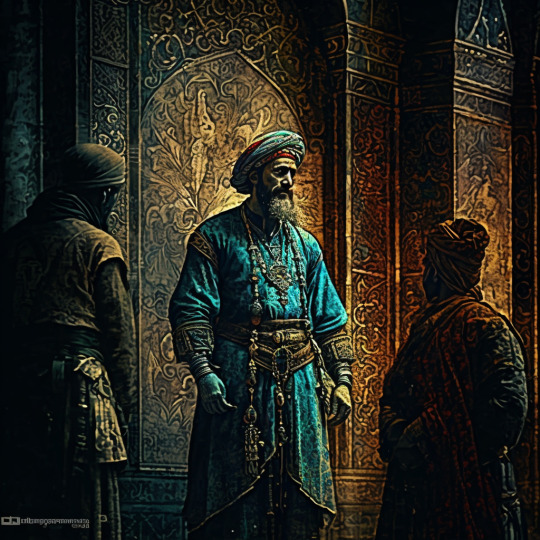
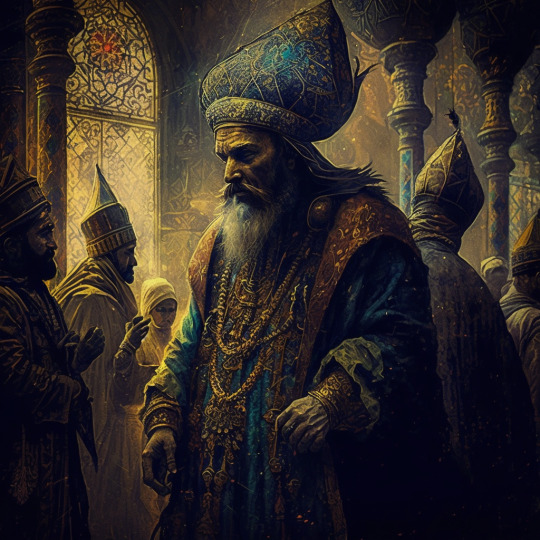
The Mighty Caliph of the Faithful in his court. By Midjourney.
8 notes
·
View notes
Text
Fatimah bint Muhammad - World History Encyclopedia
https://www.worldhistory.org/Fatimah_bint_Muhammad/

View On WordPress
#619#632#Abu Bakr#Abu Talib#Ahl al-Bayt#al-Siddiqah#al-Tahirah#al-Zahta#Ali ibn abi-Talib#Arabia#Arabian Peninsula#Ashura Festival#Caliph#Fatima bint Muhammad#Hassan#Hegira#Hijab#Hussayn#Imams#Islam#Jannat al-Baqi#Khadijah#Lady of Islam#Mecca#Medina#Mother of Imams#Muawiya#Muhammad#Muharram#Prophet
2 notes
·
View notes
Text
youtube
#quran#prophet adam story#english story#one islam#koran#abu bakr#first khalifah#caliphate#islamic story#caliph#prophet muhammad story#prophet muhammad death#prophet muhammad (saw)#history#islamic cartoons#prophet stories for kids#1st caliph#iqracartoon#prophet muhammad (s)#first caliph#prophet story#islamic history#prophet muhammad#yaqeen institute#muslim#victory#prophet stories muhammad#prophet's death#mecca#islam
1 note
·
View note
Text
youtube
#quran#prophet adam story#english story#one islam#koran#abu bakr#first khalifah#caliphate#islamic story#caliph#prophet muhammad story#prophet muhammad death#prophet muhammad (saw)#history#islamic cartoons#prophet stories for kids#1st caliph#iqracartoon#prophet muhammad (s)#first caliph#prophet story#islamic history#prophet muhammad#yaqeen institute#muslim#victory#prophet stories muhammad#prophet's death#mecca#islam
0 notes
Text
How a wrong vowel in the Quran may produce blasphemy
The correct vowel endings damma, kasra, fatha in Arabic can be a headache. If you are careless, you could turn verse 9:3 of the Qur'an into blasphemy (kufr).
https://arabic-for-nerds.com/grammar/analysis-sura-9-tawba/?feed_id=4748
#GRAMMAR#ISLAM#TRANSLATION#ABUALASWADALDU’ALI#ANECDOTE#BASMALA#CALIPH#FATHA#IRAB#KASRA#OATH#OBJECTOFACCOMPANIMENT#OMARIBNALKHATTAB#SURA9#THEPROPHET#WAW#WIEDERHOLEN#إعراب#جملةاسمية#جملةفعلية#قسم#مبتدأ#مجرور#مرفوع#منصوب#واو
0 notes
Link
Abu Bakr is the first Rashidun Caliph. The duration of his caliphate was two years and four months. The time immediately after the demise of Prophet Mohammad (pbuh) was very challenging. However, Abu Bakr very wisely dealt with all those challenges.
#sultanbahoo#sultanulashiqeen#saint#islam#allah#faqr#sufism#sufi#mysticism#spirituality#abubakr#rashidun#caliph
0 notes
Link
Abu Bakr is the first Rashidun Caliph. The duration of his caliphate was two years and four months. The time immediately after the demise of Prophet Mohammad (pbuh) was very challenging. However, Abu Bakr very wisely dealt with all those challenges.
#sultanulashiqeen#sultan_ul_ashiqeen#markazefaqr#tehreekdawatefaqr#allah#prophetmohammad#spirituality#faqr#sufi#sufism#islam#divine#abubakr#rashidun#caliph
0 notes
Text


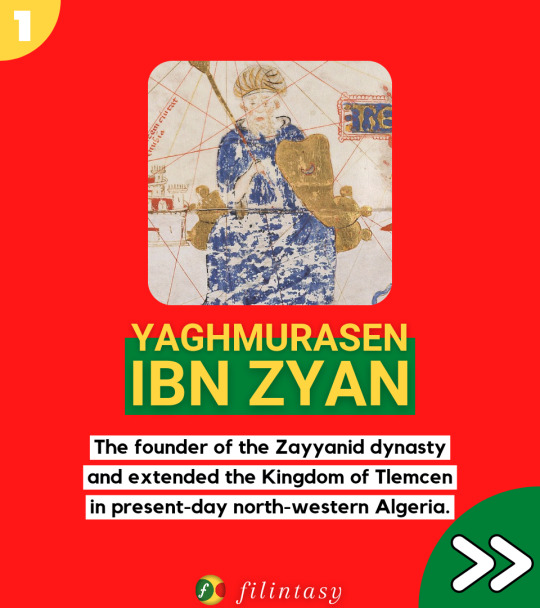

Yaghmurasen Ibn Zyan (1206 – February/March 1283) was the founder of the Zayyanid dynasty. Under his reign the Zayyanid Kingdom of Tlemcen extended over present-day north-western Algeria.
#founder#dynasty#kingdom#tlemcen#algeria#name#tribe#berber#life#caliph#reign#military#sword#campaign#arab#battle#mother#anecdote#prophet#prophetmuhammadﷺ#geneology#claim#true#god#world#success#minaret#oujda#extended#filinta
0 notes
Photo
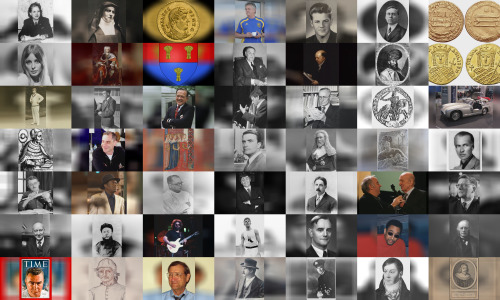
History Deaths on August 09
0 notes
Text
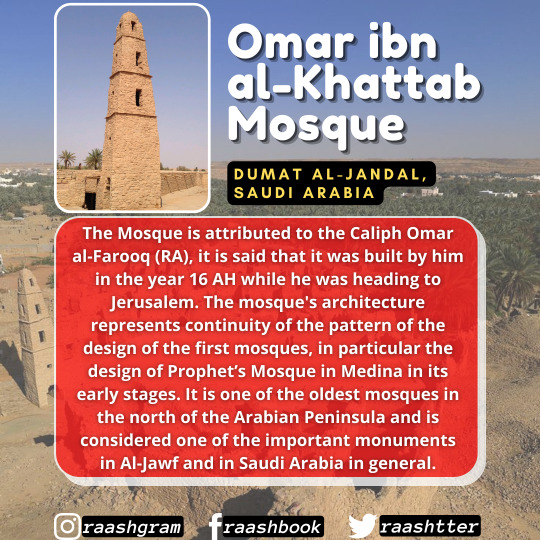
The Mosque of Omar Ibn al-Khattab is situated in the town of Dawmat al-Jandal, which was a major intersection of ancient trade routes linking Mesopotamia, Syria and the Arabian Peninsula. The mosque itself was built in 634-644.
#omar#mosque#saudi#saudi arabia#caliph#jerusalem#architecture#pattern#design#prophet#medina#stage#arabian#peninsula#monument#general#raash#instagram#facebook#twitter#tumblr#photography#photo of the day#photographer#architecture lovers#architecture photography#tumblr photographer#tumblr photography#photography on tumblr#photographer on tumblr
1 note
·
View note
Photo

The "world" in the eyes of 9th century Abbasids
152 notes
·
View notes
Text
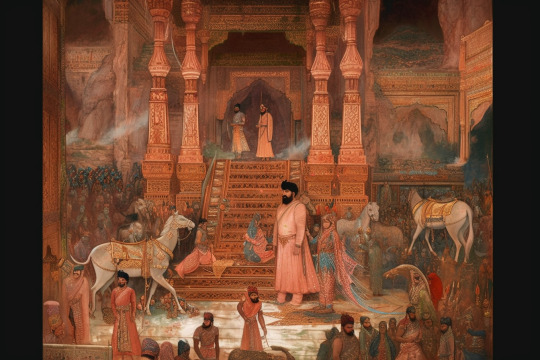
When I made the Solomonic Throne Rooms and Caliphs, Midjourney made this picture. It took the cue from the word 'Persian' and did it in the style of Persian Miniatures.
2 notes
·
View notes
Text
Second Moon Uprising: How Science and Skullduggery Helped an 8th Century Prophet Raise a Revolt | Ancient Origins
https://www.ancient-origins.net/history-famous-people/second-moon-uprising-how-science-and-skullduggery-helped-8th-century-prophet-021461
View On WordPress
#11th century#12th century#775 AD#780 AD#783 AD#785 AD#8th century AD#Abbasid Empire#Abbasids#Abd ar-Rashid al-Bakuvi#Abraham#Abu Moslem#Adam#Al Madhi#Al-Madhi#Arabs#Bukhara#Caliph#Caliphate#Damask Silk#Dava#Great Islamic Inquistion#Hakim Ibn-e &039;Ata#Hashim ibn Hakkim#Islam#Jesus#Jihad#Karshi#Kashka Darya#Khagan of Tokharistan
0 notes